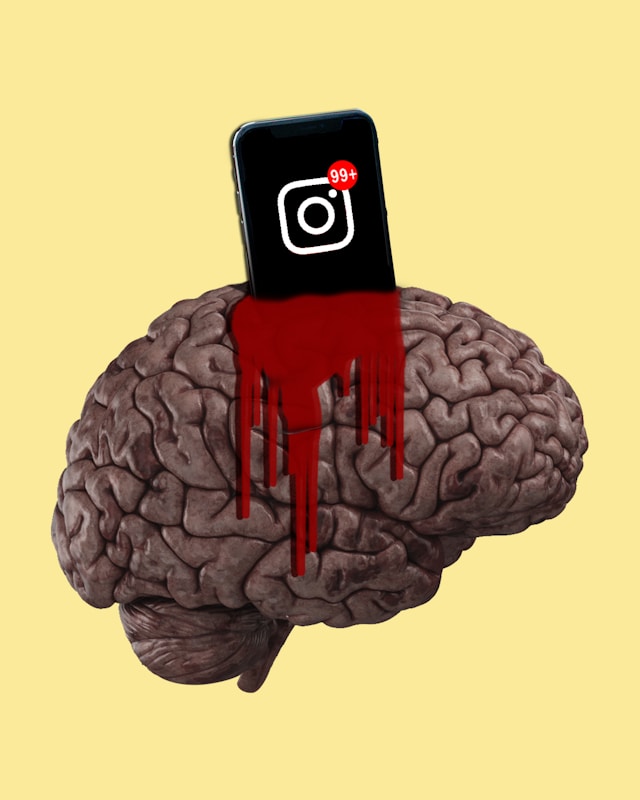


As screens have become a central part of life for both children and adults, an important question arises: Is excessive use of digital platforms truly harmful to the brain, or are we exaggerating the link between screen time and mental health issues?
Endless scrolling through negative content online, addiction to platforms like Instagram, or mindlessly watching YouTube videos are all distracting behaviors that raise concerns about their impact on brain health. But can they actually lead to brain damage?
Last year, Oxford University Press selected the term "brain rot" as the Word of the Year, defining it as “the supposed decline in someone's mental or intellectual state” caused by overconsumption of shallow or non-challenging content on digital platforms.
Dr. Andreana Benitez, Assistant Professor in the Department of Neuroscience at the Medical University of South Carolina, explained:
“This is what happens when a person consumes large amounts of low-quality digital content—it’s like junk food for the mind, harmful to mental health.”
However, the mechanism by which this type of consumption affects the brain remains unclear, as does the actual severity of its consequences.
⏱️ Screen Time: A Look at the Numbers and Their Potential Impact
According to the Centers for Disease Control and Prevention (CDC) in the U.S., half of American teenagers spend four or more hours per day in front of screens. Global estimates suggest that adults spend an average of over six hours daily online.
There are no official federal health guidelines that define a healthy screen time limit for teenagers or adults. Moreover, researchers lack sufficient data to fully understand the concept of "brain rot" and its potential consequences.
Dr. Benitez noted:
“There are no consistent scientific studies on this topic.”
Still, CDC data shows that one in four teens who overuse screens experience symptoms of anxiety or depression.
📉 Early Signs of Harm
Some studies suggest that the effects of heavy screen use may appear as early as adolescence. Teens who spend significant time in front of screens are more likely to suffer from mental health issues such as:
These findings are based on a 2024 analysis of data from the Adolescent Brain Cognitive Development (ABCD) Study, the largest long-term research project on brain development in children in the U.S.
Other studies have also linked brain rot to:
🧠 How Can We Save Our Minds from Digital Chaos?
Although there’s no evidence yet that daily screen time structurally changes the human brain, what may be more harmful is what young people miss out on during those screen hours—especially during the critical developmental stages of the brain, according to Dr. Konstantino Eddokola, Director of the Weill Neuropsychiatric Research Institute at Weill Cornell Medical Center in New York.
He explains that:
“More screen time for youth means less time for physical activity or face-to-face interaction—key experiences that provide the brain with rich sensory and emotional input that is essential for healthy development.”
He adds:
“Brain growth requires a diversity of experiences. When you’re glued to your phone, you miss out on these vital experiences. We’re replacing real human interactions with artificial ones, which lack the complexity of human responses—verbal, sensory, and emotional—that we experience when interacting with others.”
Source: Euronews